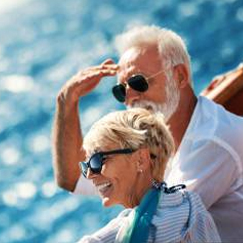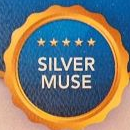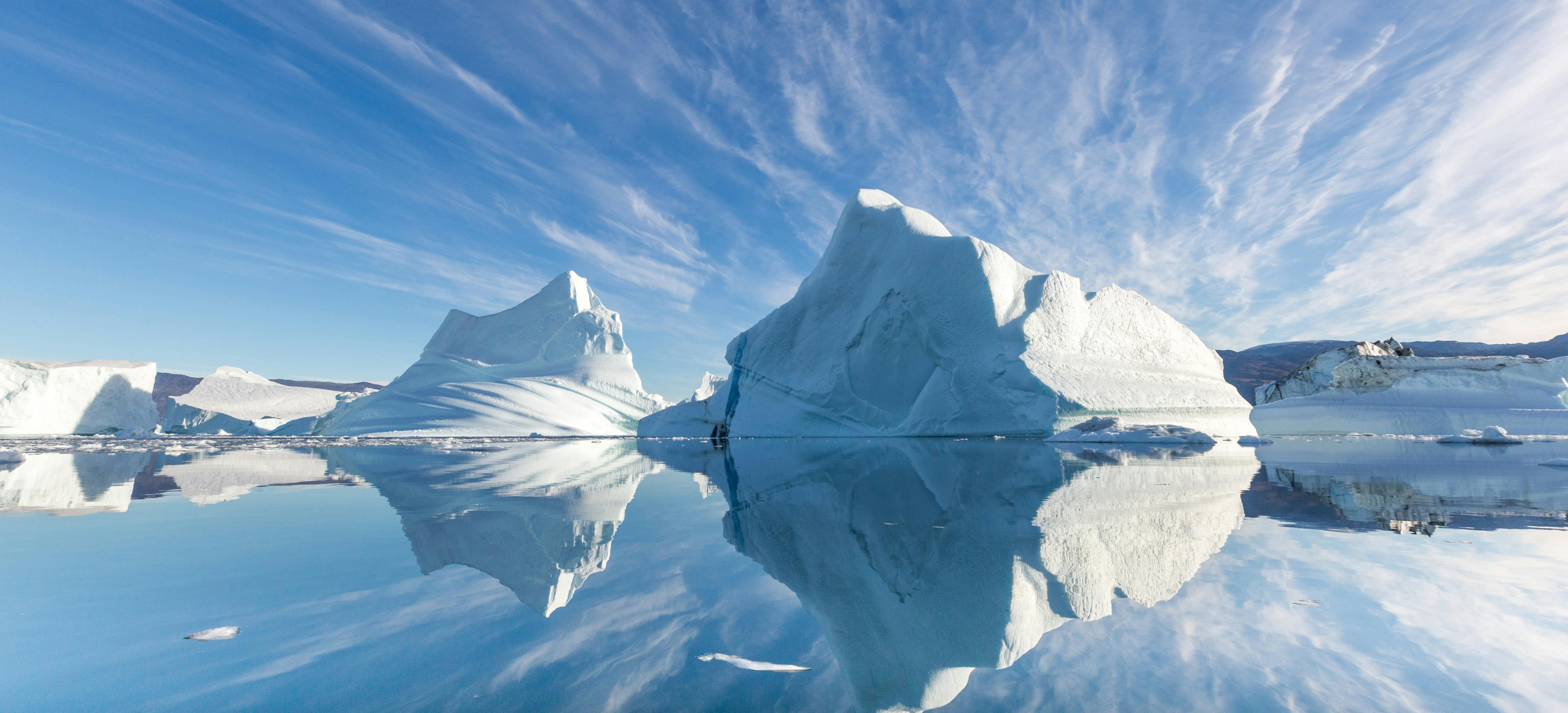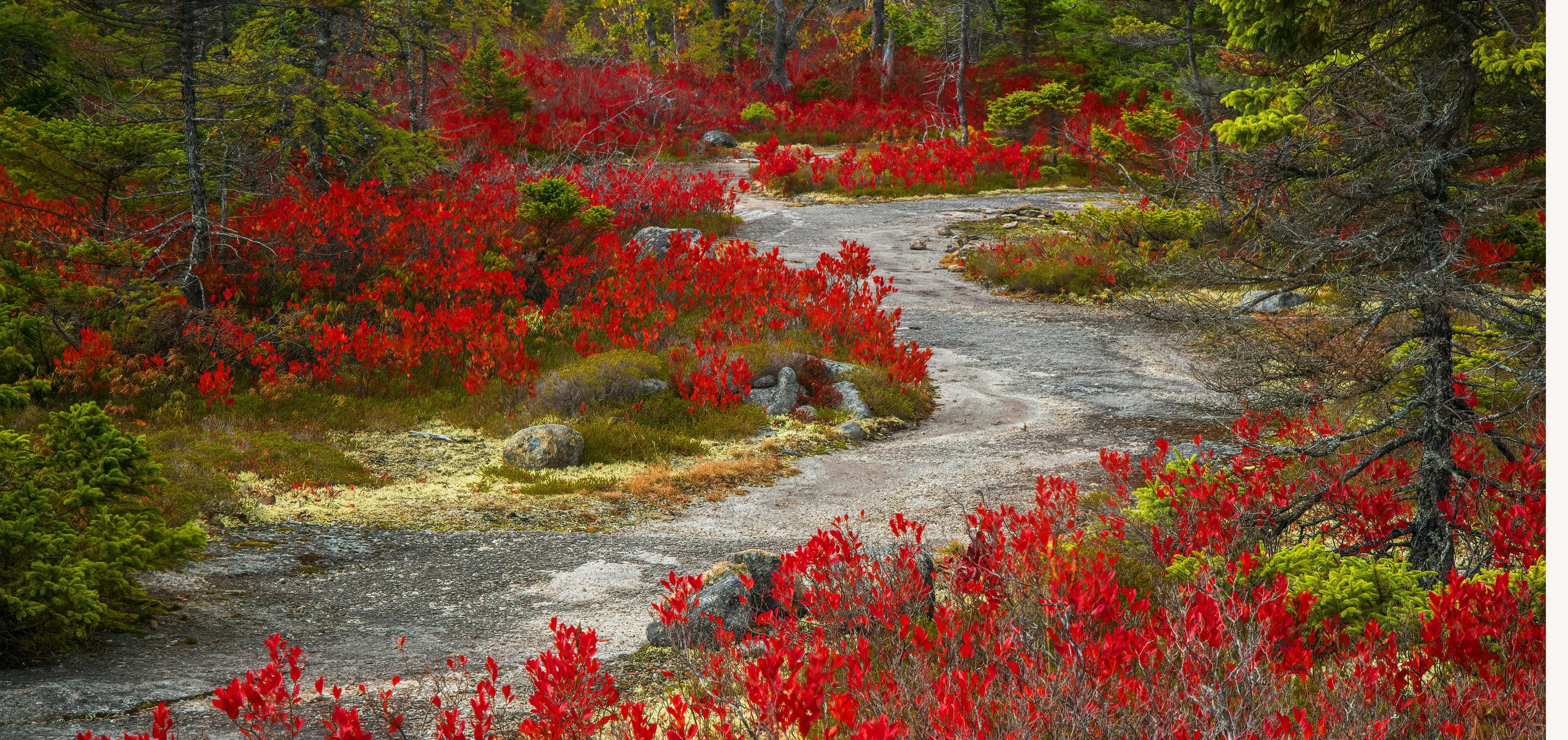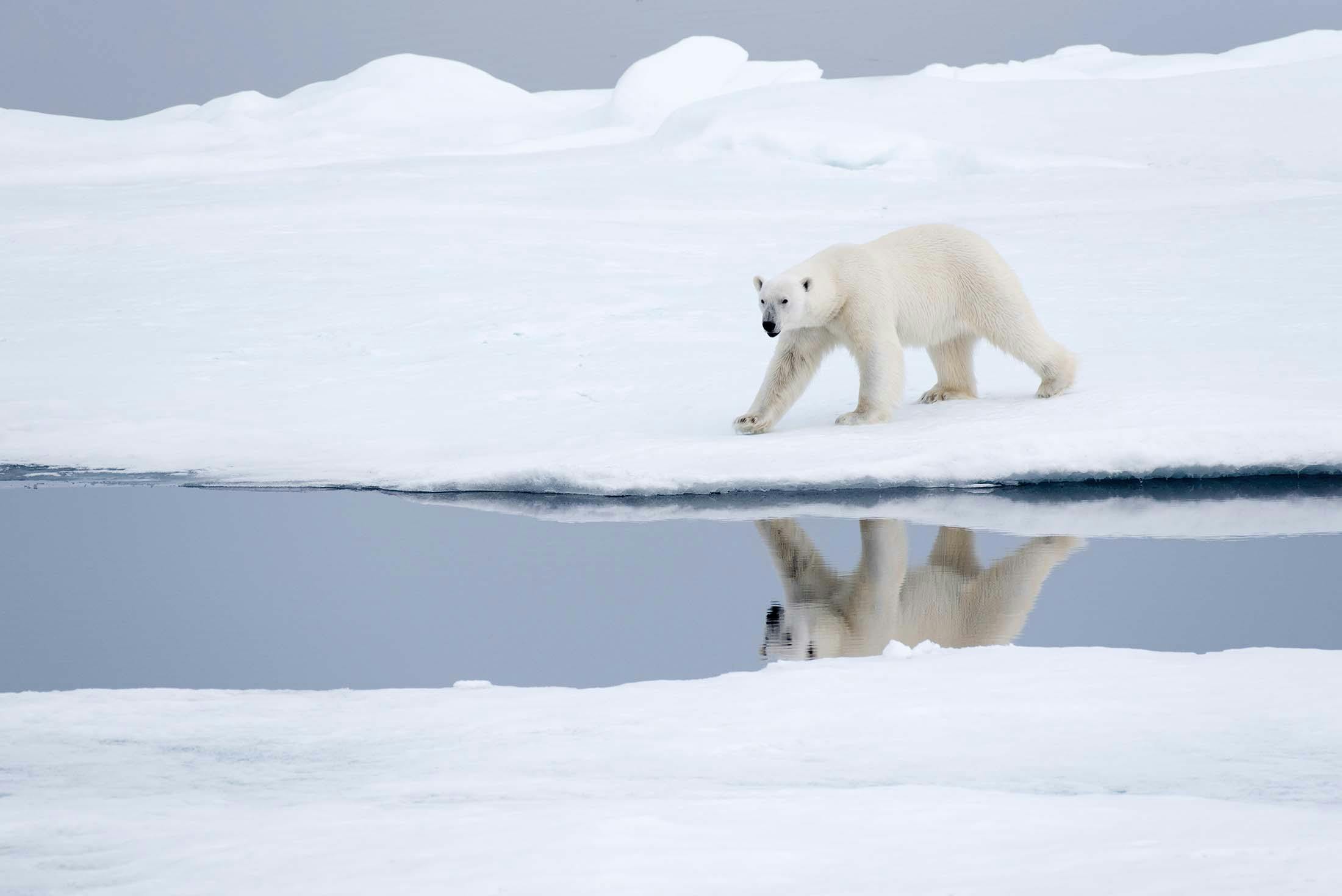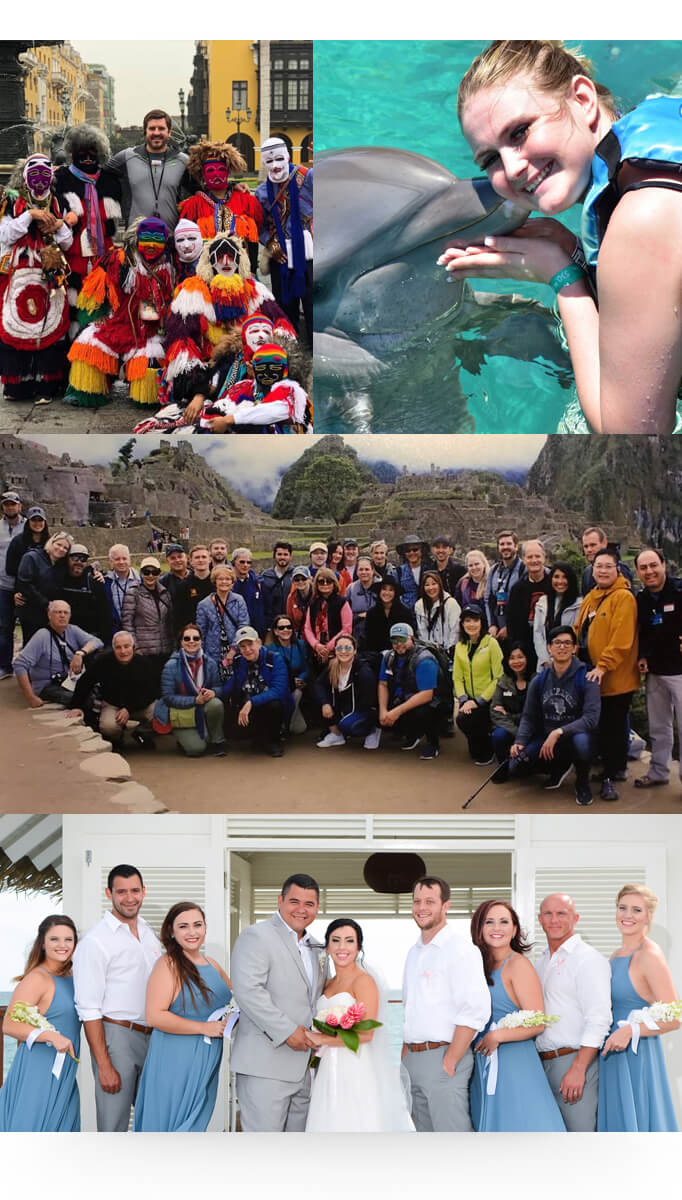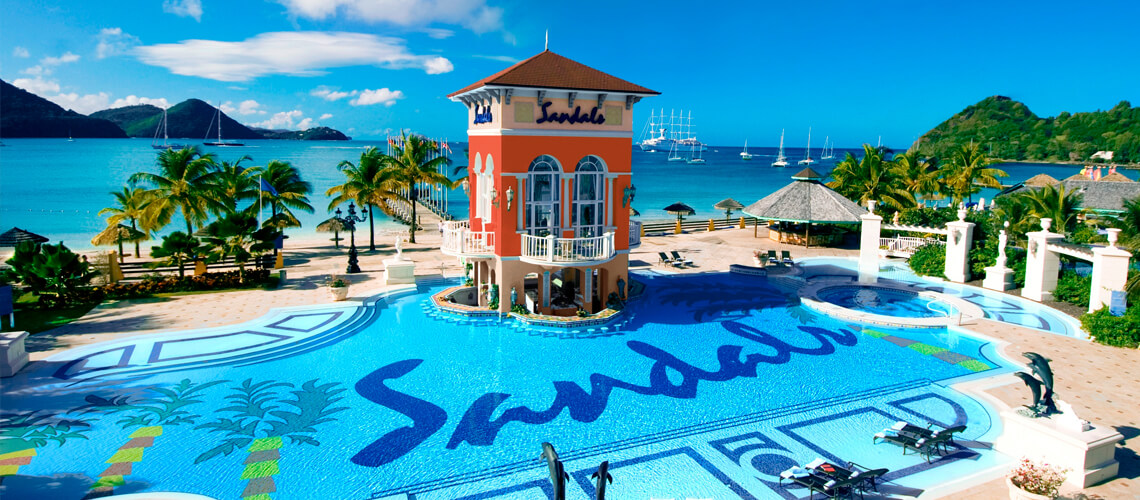An Arctic Reading List: Here Are the Books That Will Enhance Your Journey
Australian novelist Charlotte McConaghy never planned to write an Arctic adventure. Then a blizzard hit while she vacationed in Iceland, trapping her in her tiny Airbnb. She describes the experience as “frightening and wonderful.”
That frigid confinement also proved transformative at a moment when McConaghy felt adrift in every aspect of her life. Getting stranded launched an unexpected journey to write “Migrations,” her bestselling eco-thriller set against a backdrop of wild seas, endangered creatures and the Arctic’s sparkling beauty.
“Iceland really does feel like another world,” McConaghy says. “The colors and vistas are unearthly. I highly, highly recommend visiting Iceland, as any single place in the country will be life changing.”
“Migrations” is among my favorite literary escapes to pack and worth packing as you prepare to journey on your own life-changing Arctic trek, along with some nonfiction page turners and some Nordic Noir suggested below. These books bring the Arctic’s unique history, cultures and vibrant natural landscapes to life. We’ll hear more from McConaghy, along with a couple of other recommendations from her, near the end of this article.
A reading list: Don’t leave home without one
As you plan your trip, a good reading list is as vital as good walking shoes and should be chosen with the same care. I pack a few paperbacks in my carry-on and suitcase and download a wider selection of audiobooks on my smartphone. I like a mix of genres for daily walks and lazy afternoons at sea.
Here are stories to savor before, during and after an Arctic adventures.
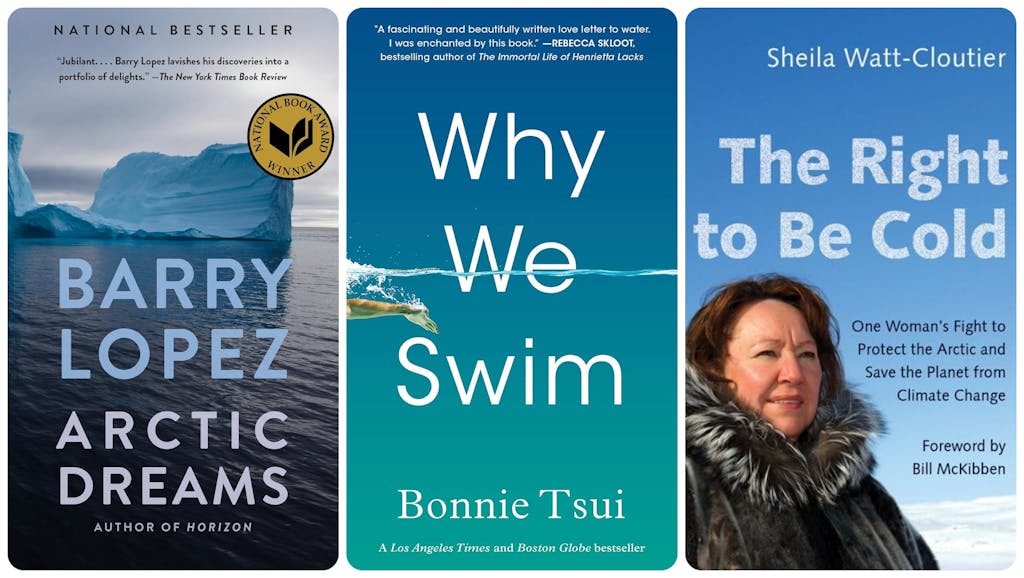
“Arctic Dreams,” by Barry Lopez. Musk oxen, polar bears and narwhal roam this bestselling natural history and travelogue exploring the facets of the Far North, its history and indigenous people. Lopez won the National Book Award for his groundbreaking 1986 classic.
“It has never been out of print and now, in our fast-warming world, reads as a premonitory elegy for a vanishing Arctic,” says Robert Macfarlane, who wrote a Guardian review of the author’s long-awaited follow up, “Horizon.”
“Why We Swim,” by Bonnie Tsui. Known as the “human seal,” Guðlaugur Friðþórsson became an Icelandic legend and international celebrity after he somehow survived six hours in 41-degree water after his fishing boat capsized. He swam three miles to shore in the dark, then hiked barefoot across icy terrain to get help.
His story and the Icelandic embrace of public pools as community gathering spaces in even the smallest towns are among the most fascinating tales in “Why We Swim.” A surfer, competitive swimmer and journalist, Tsui takes readers on a wondrous trip through time and around the world, recounting the many ways humans have adapted to and healed with water over thousands of years.
“The Right to Be Cold: One Woman’s Fight to Protect the Arctic and Save the Planet from Climate Change,” by Sheila Watt-Cloutier. Foreword by Bill McKibben. An environmental justice and human rights advocate, Watt-Cloutier was nominated for the Nobel Prize in 2007. In her memoir, she vividly writes about growing up in an indigenous Inuit community in northern Quebec: “For the first 10 years of my life I traveled only by dog sled.”
She hopes her book will help change preconceived notions about the Arctic and Inuit people and also inspire others to take up the cause of climate change. “The Arctic is not a frozen wasteland. Its ice and snow are teeming with life – not just marine and animal life but human life: men, women and children; families and communities…” she says. “What’s happening today in the Arctic is the future of the rest of the world.”
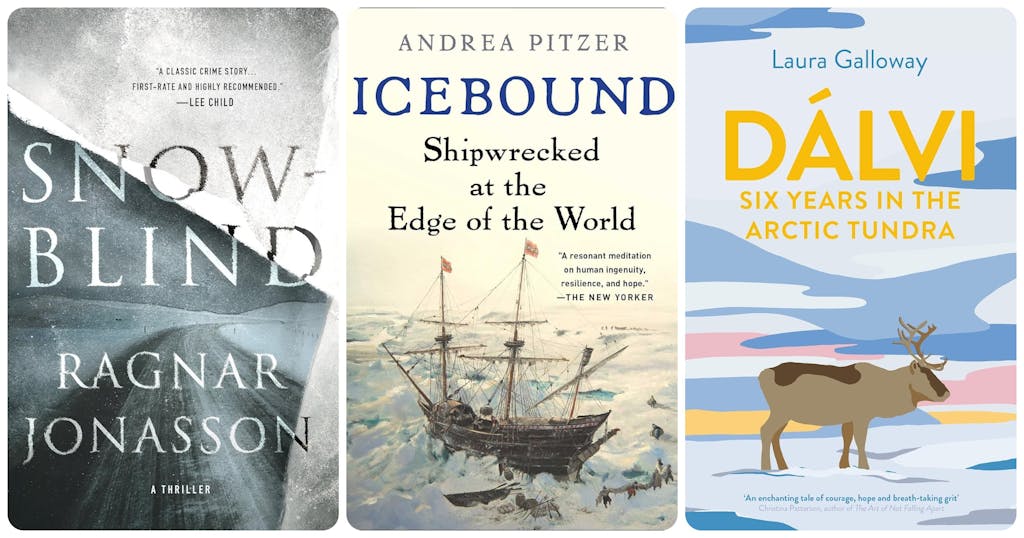
“Snowblind,” by Ragnar Jonasson. If you enjoy a good mystery on vacation, escape into the dark and increasingly popular world of Nordic Noir. Its ranks include Icelandic writers Ragnar Jonasson, Viktor Arnar Ingolfsson, Steinar Bragi and Arnaldur Indridason, who weave history, suspense and striking settings into their whodunnits. Start with Jonasson’s “Snowblind,” a bestseller set in Northern Iceland and featuring a rookie police officer training in a small town where supposedly nothing ever happens. It’s the first of his “Dark Iceland” series.
“Icebound: Shipwrecked at the Edge of the World,” by Andrea Pitzer. If you’re a history buff, check out this sweeping history, which takes readers inside the fierce competition of the Great Age of Exploration from a new perspective.
Pitzer, a journalist and nonfiction author who founded Nieman Storyboard at Harvard University, set out on three Arctic expeditions of her own. She wanted to piece together the three voyages of a 16th-century Dutch navigator who explored the most remote Arctic regions in search of a northern trade route to China. William Barents’ obsessive quest expanded the edges of the mapped world.
“More than just another book about a disastrous sea voyage, this is a richly evocative story about a particular period in the history of exploration,” says David Pitt at Booklist. “’Icebound’ deserves a place beside such classics as Alfred Lansing’s ‘Endurance: Shackleton’s Incredible Voyage’ and Roland Huntford’s ‘The Last Place on Earth: Scott and Amundson’s Race to the South Pole.’”
“Dálvi: Six years in the Arctic Tundra,” by Laura Galloway. In her offbeat travel memoir, a New York writer explains what happens after her marriage implodes and an ancestry test suggests she shared DNA with the indigenous inhabitants of the Arctic tundra.
She strikes up a long-distance relationship with a Sámi reindeer herder in a remote village. Then she impulsively packs up her cats Boo and Rennie and moves to tiny Kautokeino, Norway, where Galloway becomes even more of an American fish out of water than “Emily in Paris.” The romance fizzles after six months, but Galloway ends up staying six years, embracing the Sámi culture, language and even minus 40-degree winters.
“This is a place where you have to be with yourself because there are no distractions, only work and nature and time,” she writes. I devoured the Dálvi audiobook in a single weekend.

“Compass Lines,” by John Messick. From the Arctic to Antarctica, Messick explores the meaning of connection in a series of raw, restless stories from a life in motion. Messick writes about wielding a chainsaw on a crew battling wildfires in Alaska, grappling with the cruelty and mechanics of animal trapping, and how he came to volunteer as a national park caretaker (along with wife, Mollie, pregnant with their first child) in the mountains of Bremner Historic Mining District.
“This book is a collection of really profound essays of his travels to the most remote parts of the world and how he ultimately found home in Alaska,” says L.A. Times environmental reporter and author (“California Against the Sea”) Rosanna Xia, who shared the 2023 book from Alaska indie publisher Porphyry Press with me. “It could be a great read while you’re on an Arctic adventure.”
“Migrations,'”by Charlotte McConaghy. Set in a near future, “Migrations” is a haunting story of climate change, twists and hope that begins across the Denmark Strait in Greenland. Readers immediately meet Franny Stone, a young woman with many secrets who pushes her way onto the Saghani, one of the few remaining fishing boats in a world where wildlife extinction has accelerated. Franny is on a mission to find the world’s last flock of Arctic terns at any cost.
Iceland was McConaghy’s muse for the book, but her narrative’s focus is on the Arctic tern. And these remarkable birds more typically breed in icy Greenland, where they begin their immense migration south.
“Migrations” hooks and chills with these opening lines: “The animals are dying. Soon we will be alone here.”
To craft her first literary fiction novel (McConaghy previously wrote Young Adult books), the 35-year-old Sydney, Australia, writer delved deeply into environmental and maritime research. She also tapped into her father’s experience working on a salmon fishing boat in Alaska and Siberia.
The novel was published as “The Last Migration” in Australia and the U.K. in 2020 and quickly gained critical acclaim and Hollywood attention with Benedict Cumberbatch and Claire Foy teaming up for a screen adaptation.
“Sea yarns that serve as voyages of self-discovery have been the exclusive literary domain of men for far too long,” said Michael Christie in The New York Times, “and McConaghy deserves extra credit for sounding the oceanic depths of the female soul.”
McConaghy calls her book a “love letter to all the wild places and creatures left in the world, and an urgent warning not to take them for granted.”
“If readers get anything at all from the novel, I hope it’s a renewed sense of purpose, of energy and of action. The message in it is clear: Though it may seem so, it is not too late to make change.”
And a poet’s work to pack in your bag

McConaghy also suggests another writer to take along on your trip: poet Mary Oliver.
“I love Mary Oliver, more for her sense of awe and adoration of the natural world. She would be a lovely writer to read while traveling as she inspires you to look closely in wonder at the tiny wild moments of beauty surrounding you.”
You might want to start with “Devotions: The Selected Poems of Mary Oliver,” a collection spanning five decades of her best work. Or if you’d rather listen, try “Wild and Precious,” a 2023 audiobook that reflects on the life and writing of the Pulitzer Prize-winning American poet in her own voice as well as the voices of other writers.
